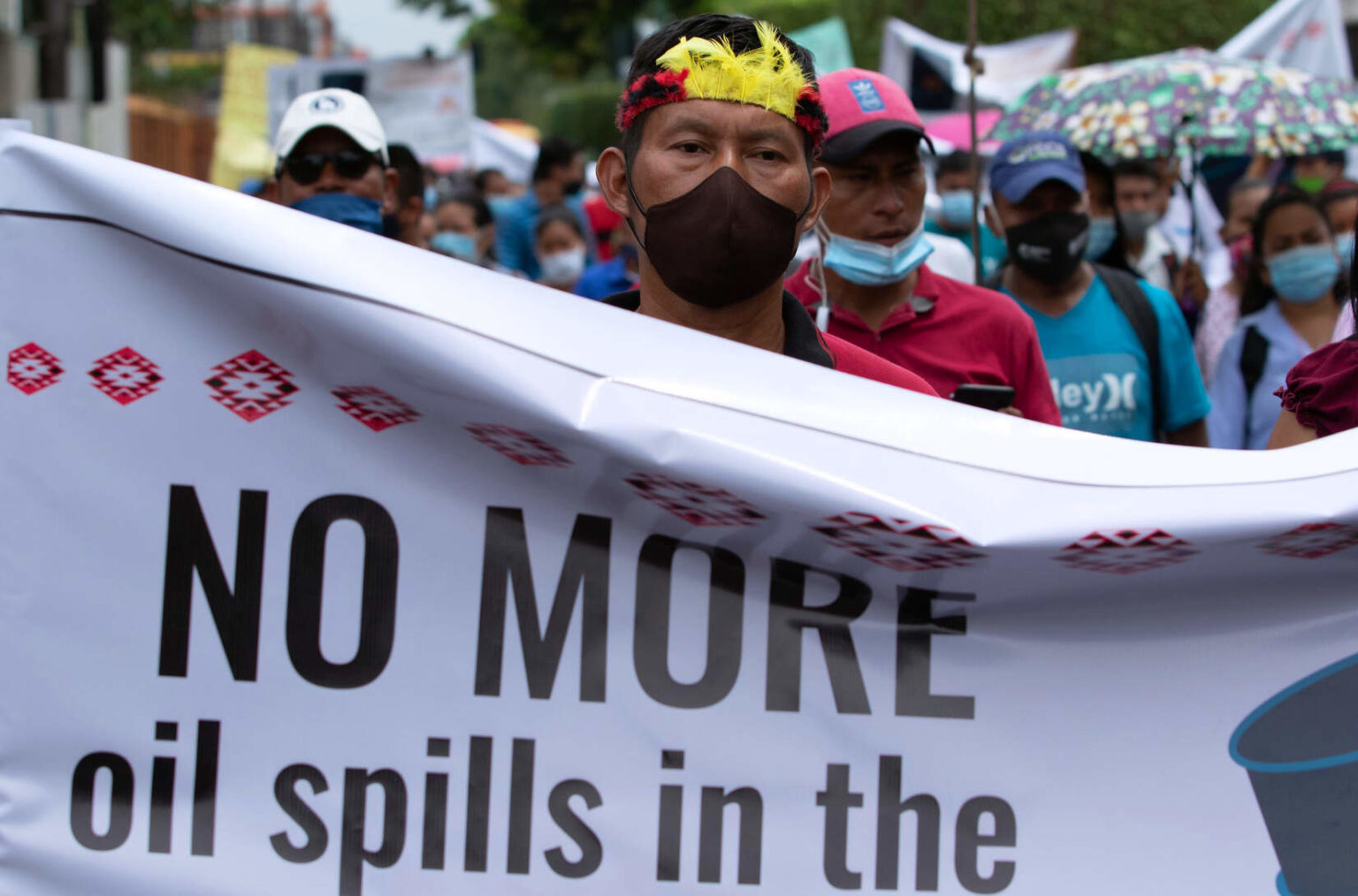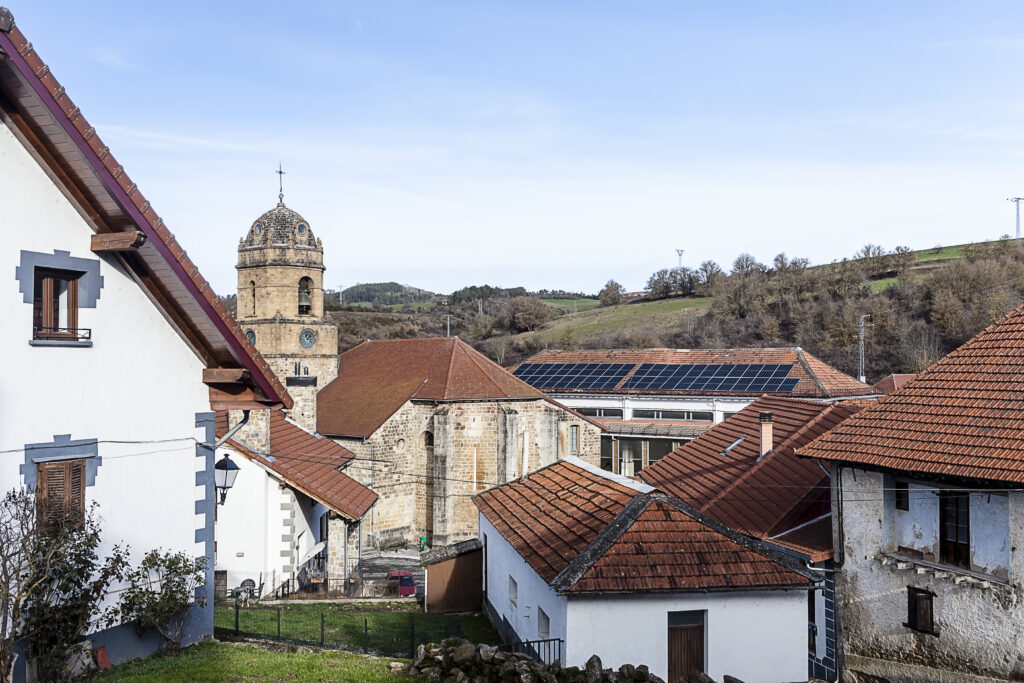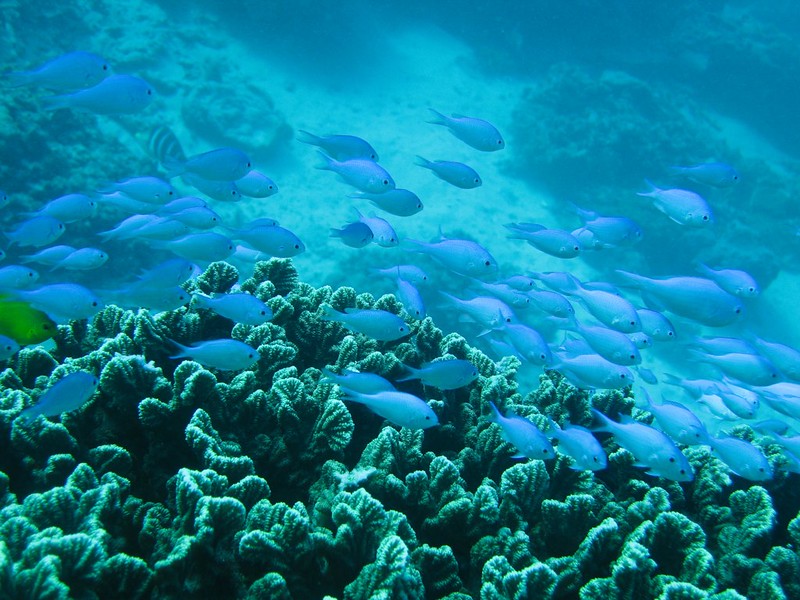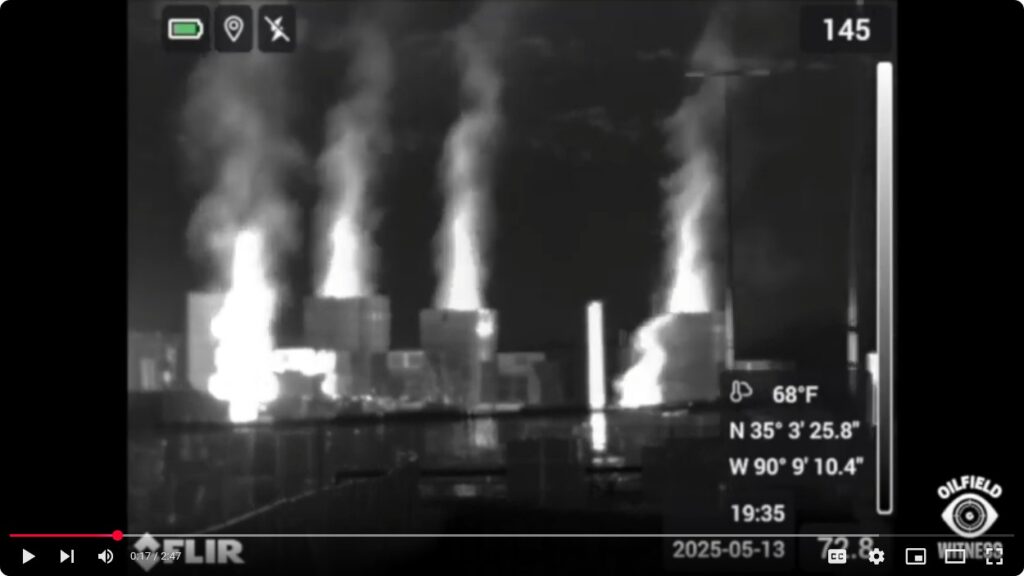Indigenous campaigners have vowed to “fight until the end” after a lawsuit to suspend Ecuador’s oil operations was thrown out of court.
An estimated 27,000 people were left without safe water, fish and game after a landslide ruptured three pipelines in the Amazon in April, causing 15,000 barrels of crude oil to pollute two major rivers.
Dozens of complainants told the trial, held by Zoom, of the health risks caused by the spill, from toxic fish floating in the waters to unexplained rashes irritating their children’s bodies.
But nearly four months after the lawsuit launched, Judge Jaime Oña has ruled that the dispute fell outside the court’s jurisdiction, thereby denying that the constitutional rights of Indigenous peoples and nature were violated.
Carlos Jipa, president of the Kichwa Indigenous federation, FCUNAE, confirmed the decision would be appealed. He addressed fellow campaigners on Tuesday as they reacted to the ruling in the city of Coca, Orellana:
“Oil operations are still contaminating our rivers and threatening our lives,” he said. “We protect our rivers and our forest, and we are ready to fight this until the end.”
Unacceptable outcome
The decision was “unacceptable”, said Maria Espinosa, a lawyer for NGO Amazon Frontlines.
“27,000 Indigenous people are still in grave danger and facing the imminent risk of another oil spill,” she said in a statement.
“Throughout the trial, we have demonstrated how the Ecuadorian government and the oil companies violated the constitutional rights of Indigenous Peoples and the rights of nature, and that extractivism is destroying people’s lives and the Amazon rainforest.”
“To this day, there is still no guarantee of justice or reparations for those affected. We will appeal this ruling, and fight together until justice is delivered.”
Defendants told the court the river would replenish itself in the wake of the spill, and oil companies insisted they’d provided adequate clean water for those impacted.
However, Amazon Frontlines says families impacted were given only three litres of water a week, a fraction of the 50 to 100 litres per person per day recommended by the World Health Organization (WHO).
The immediate danger to the communities’ primary water and food supply is heightened by increased isolation imposed by COVID-19.
Veronica Grefa, Kichwa leader and President of Toyuca community, called for an end to continued extraction in the Amazon.
“As a Kichwa indigenous woman, I will continue to fight for my people’s rights and lives.”
“We demand justice. Our families are still suffering from the disastrous impacts of this spill, and we still don’t have clean water and food. Our communities are united to defend our rivers for future generations.”
Demanding answers
Members of the Kichwa and Shuar tribes launched the lawsuit in April with regional and international organisations. They demanded the Ecuadorian government and state-owned oil company Petroecuador repair the damage, offer remedial action to those impacted, and prevent future leaks.
Individual plaintiffs from the 105 affected communities escalated these demands in August, calling for the suspension of the affected Petroecuador, Trans-Ecuadorian Oil Pipeline System (SOTE) and Heavy Crude Oil Pipeline (OCP) operations, which control the entirety of Ecuador’s oil supply.
Activists acknowledge that the leak in the Rivers Coca and Napa was likely to be caused by riverbed erosion stemming from a nearby Chinese-funded hydroelectric plant. However, they claim the oil companies were repeatedly warned of the risks in the months ahead of the spill as the erosion stretched downriver from the dam, destroying Ecuador’s tallest waterfall, San Rafael, in February.
Campaigners are also demanding answers over the oil companies’ delayed response to the disaster, and their refusal to safeguard the communities from future devastating oil spills through preemptive action.
Ecuador’s government temporarily suspended pipe flow in June, but has since restarted pumping.
Photo: © Ivan Castaneira
Subscribe to our newsletter
Stay up to date with DeSmog news and alerts







